From Hamlet to Software: Jarek’s Journey to DevOps Engineering
One day, Jarek decided to become an actor. Discover how his dream clashed with reality and how software development became his safety net. Learn about the one decision he regrets, what excites him about DevOps, and how learning to play the guitar reminds him of programming.
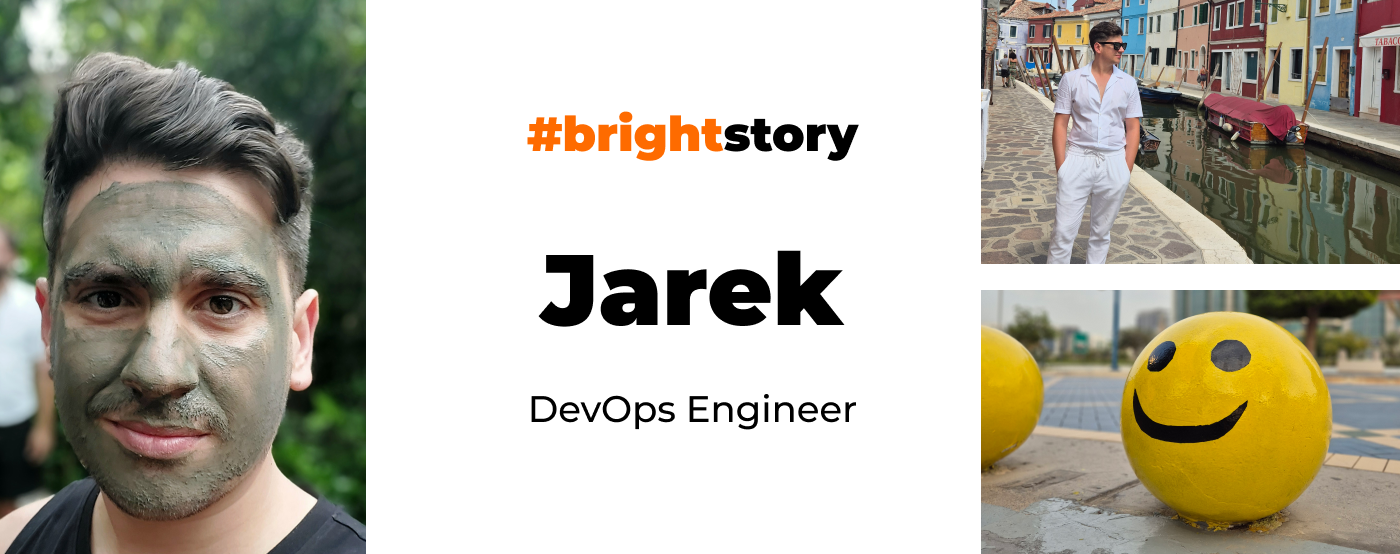
I heard that you studied acting. Is that true?
It’s partially true. I attended acting classes for a year conducted by a professional actress, and then I tried to get into an acting college in Poland. I managed to pass the first stage at the school in Cracow, but that was as far as I got. You know, there were 1,600 applicants for just 20 spots – the competition was definitely high.
Have you always had a plan to become an actor?
Actually, no. I was studying computer science at Wroclaw University of Technology, and during my third year, this thought popped into my head: maybe I should try to become an actor. I gave it a shot, but it didn’t work out for me. I returned to computers, actually feeling happy and relieved.
That said, I recommend studying acting. During my classes, there was a strong focus on psychology, empathy, and understanding what people go through every day. However, the profession itself is extremely demanding. Like every aspiring actor, I tried performing Hamlet. After just a week of immersing myself in the role, I started to resent women, which is far from my usual emotions toward them. The role consumed me too much.
I know we often think of actors as wealthy, successful people, but the reality is quite different. Most actors have low-paying, highly demanding jobs in theatres if they’re lucky.
So you came back to college?
I didn’t finish my studies because I was pursuing acting. I regret that now, but at the time, I felt this pressure to completely focus on acting. All I kept hearing was that at 22, I was already too old, too "molded" to start in this profession. If I could go back to those times, I’d tell myself: “Hey, idiot, finish college first and then pursue this dream”.
Nevertheless, you ended up in software development. How did that happen?
Since I was 18, I worked at a bank between my college semesters. That’s how I landed a job as a company IT specialist, and it marked my first steps into the corporate world. It gave me a lot of valuable experience – I learned how to collaborate with accountants, consultants, and other departments. After I let go of my dream of acting, I was welcomed back there.
Later, I worked at another corporation in a shift-based job focused on backups. It was tough and not very exciting because no one expected us to solve anything; it was just a ticket-driven job. Then I moved to another corporation to work as an application administrator. Most of the tasks there were manual, and we couldn’t automate them. To be honest, I’m a rather lazy person, and I don’t like repetitive work unless it’s absolutely necessary.
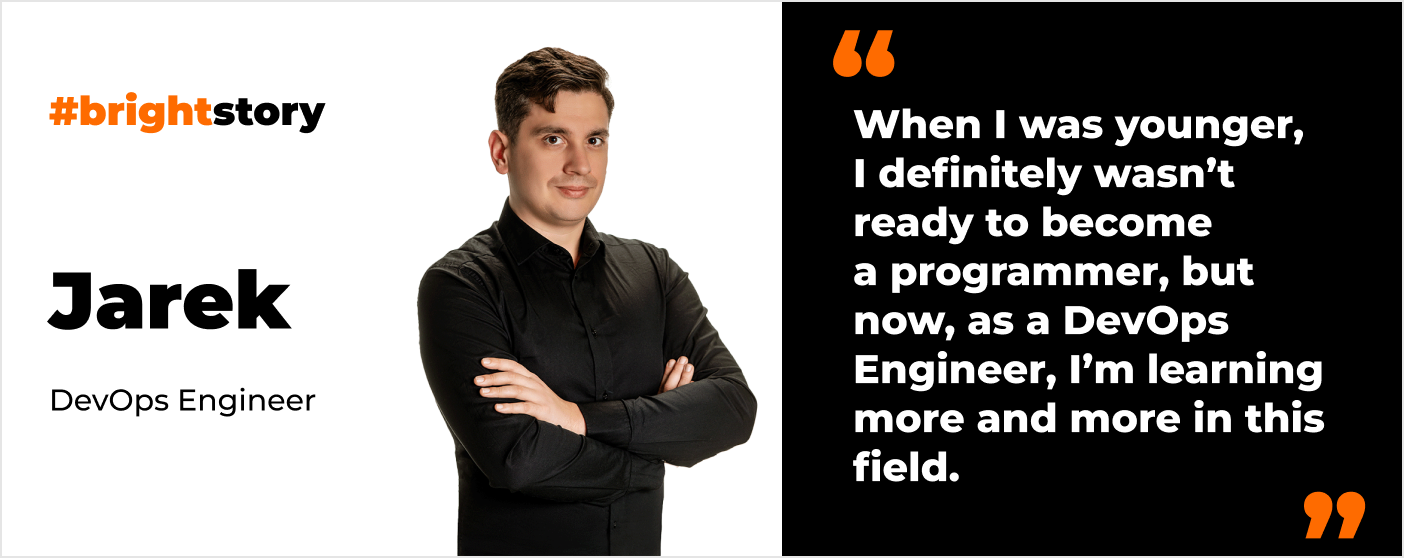
That’s when I thought, "This might be it." I had learned some basics in college, had some experience, and really loved automation, so I decided to give DevOps a try. I don’t think I have the patience to write code all day, but I enjoy scripting – that’s enough for me. Sometimes, it allows me to escape the abstraction and focus on a screen with white numbers, which has helped me build patience. When I was younger, I definitely wasn’t ready to become a programmer, but now, as a DevOps Engineer, I’m learning more and more in this field.
I got my first job as a DevOps engineer in a team that lacked sufficient know-how. It was hard to learn from others there. While you can learn a lot on your own, no certificate or course can replace mentoring from an experienced colleague. That was what I lacked in that role, but eventually, I found it here at Bright Inventions.
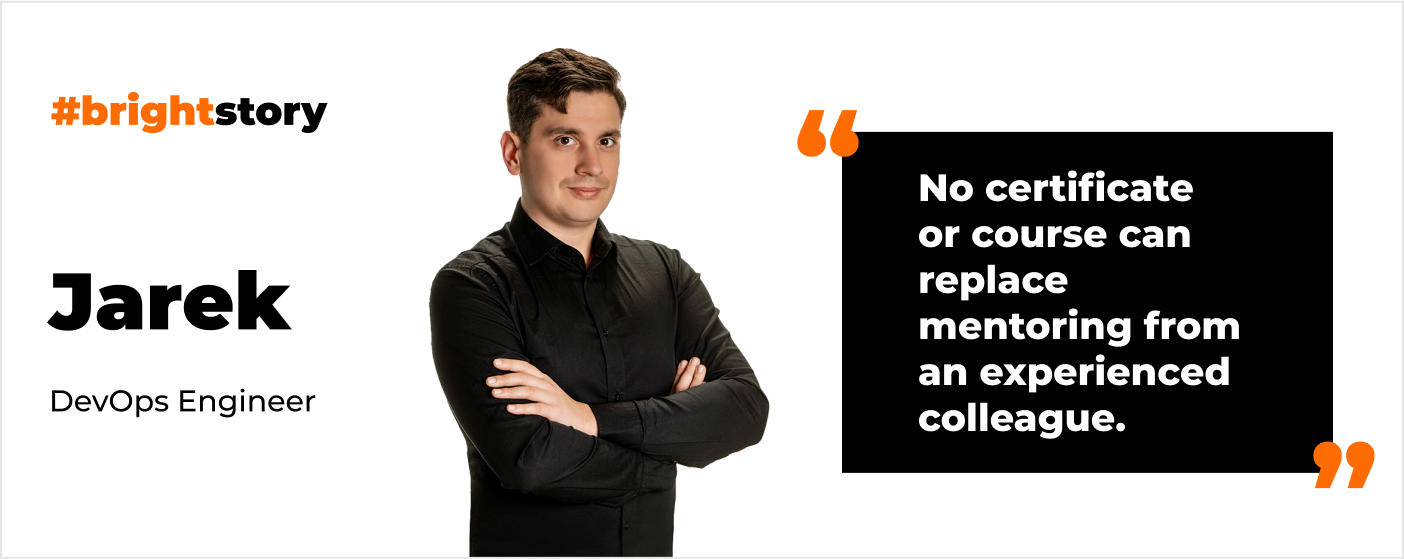
With your corporate experience, how do you find yourself at Bright Inventions?
It’s great! I really admire the pace at which things are managed here. For example, I wanted to share information about a charity fund with the whole team, so I asked Ula if that was possible. She gave me approval in just two minutes. In the corporate world, I probably wouldn’t have received approval until after the fund’s deadline had passed.
In terms of the technical aspect of my work, the number of great experts here is truly impressive. For me, as a relatively inexperienced DevOps specialist, it feels like being promoted to the top league. I’m surrounded by people I can always approach to discuss technical matters, get another opinion, and receive valuable suggestions.
I also must say that the team retreats at Bright Inventions are the best I’ve ever experienced!
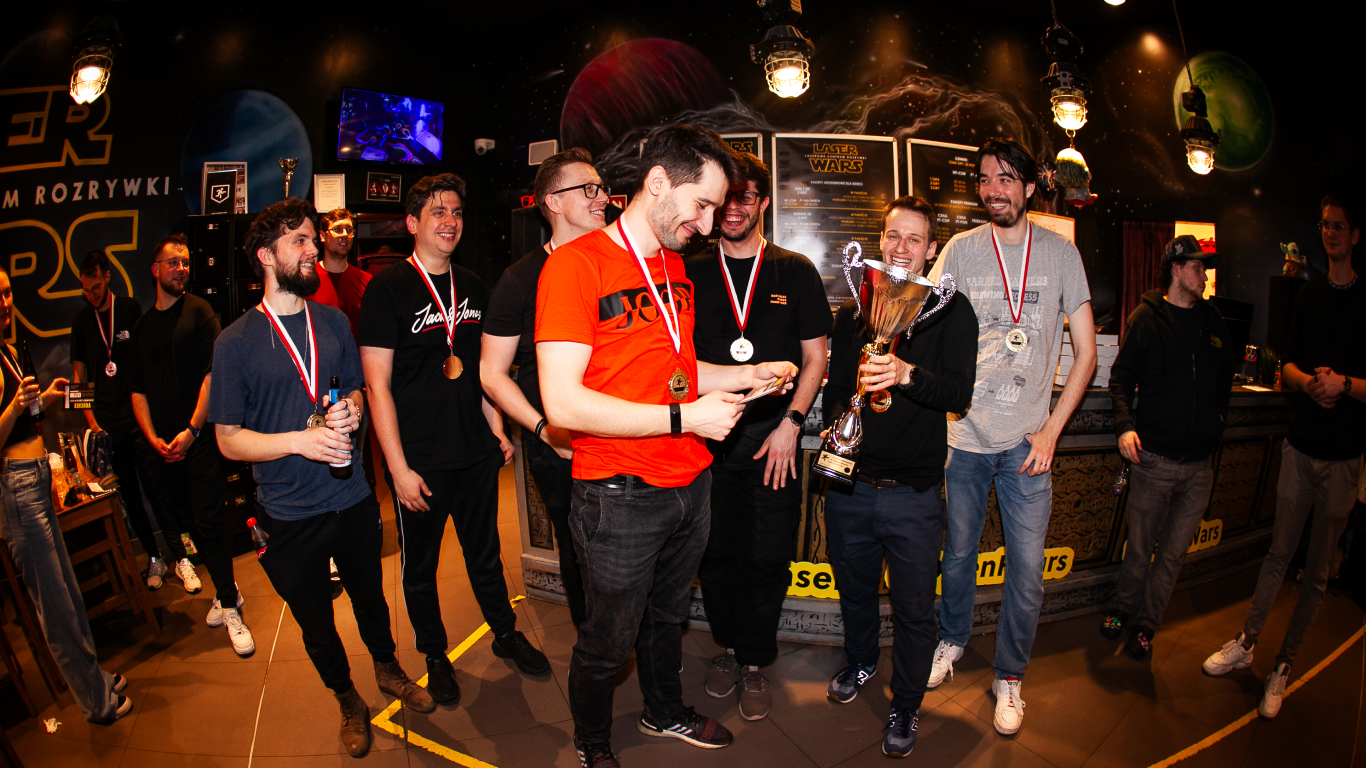
What were your biggest challenges as a DevOps Engineer?
One of the challenges is the need to constantly switch between technologies. For example, do you need to know SQL as a DevOps engineer? Not usually – until you suddenly have to know everything about it! In this profession, you have to quickly catch up on new technologies to effectively communicate with the people who use them daily.
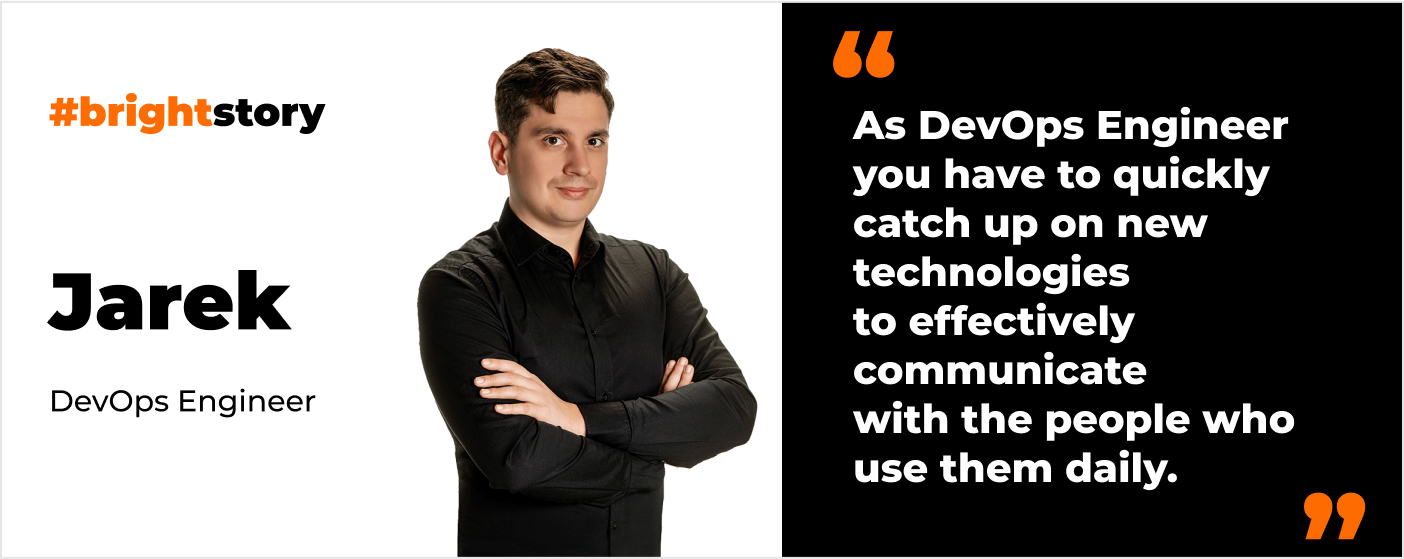
As long as you don’t rest on your laurels or focus solely on maintenance, you’ll encounter plenty of challenges. Adjusting to different conditions and learning new skills keeps the role exciting for me.
I know you play guitar. How’s that going?
Guitar has always felt like a kind of fate for me. Back in college, a friend played and gave me a guitar to try out. I felt really good about it at the beginning and wanted to see how far I could take it.
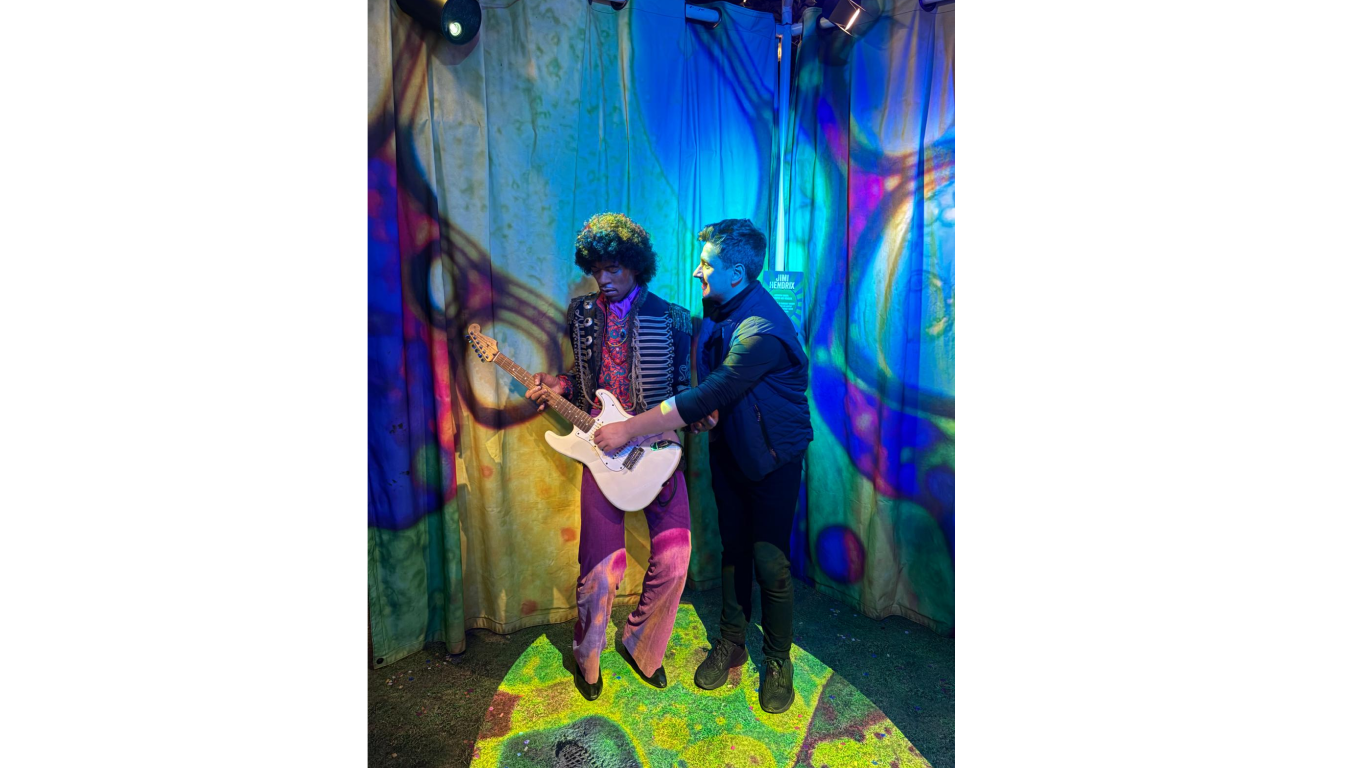
Recently, though, I realized I’d been learning the wrong way for years. I wasn’t really playing – I was just reproducing songs, without any understanding of what was happening underneath. Eventually, I hit a wall with songs that required more technical skills. I didn’t have any theoretical music knowledge, so now I’m trying to catch up, and I’m already starting to see results.
I’d say that the basics are crucial – perhaps even the most important part. Only when you have a strong foundation can you truly understand more advanced concepts. It’s similar to software development, really. It’s also like learning a Spanish poem by heart – you might be able to recite it fluently, but that doesn’t mean you actually speak Spanish.

